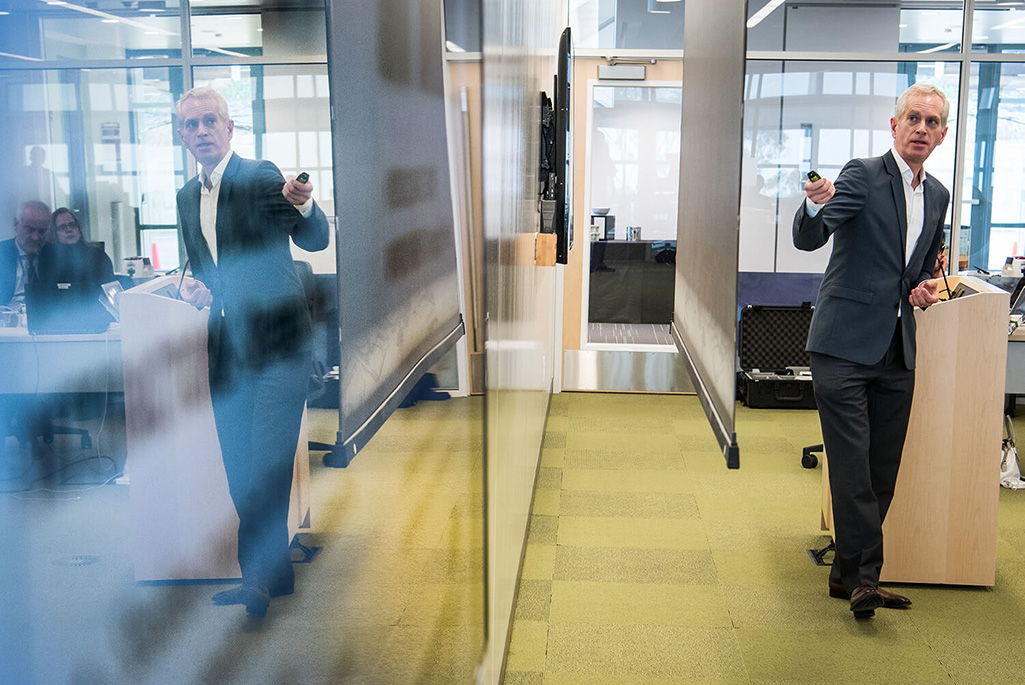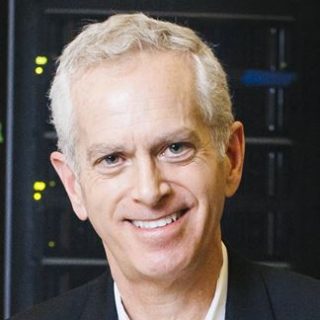The staff scientists and affiliates in EESA work collaboratively across a wide range of climate, geological, energy, and ecological science disciplines to increase our understanding of fundamental Earth processes, and to provide solutions for urgent energy and environmental challenges.
Collins served as director of EESA’s Climate and Ecosystem Sciences Division from 2015 to the present and directs the Carbon Negative Initiative, which seeks to accelerate the development of negative emissions technologies that capture and remove carbon dioxide from the atmosphere to limit global warming. He is also a professor in residence at UC Berkeley’s department of Earth and Planetary Science.
His term as ALD began on Dec. 1, 2022.
“It is a very exciting time to join my colleagues in EESA and Berkeley Lab on tackling the ‘known unknowns’ in the science underlying the prediction and mitigation of global environmental change,” said Collins. “I’m looking forward to helping the Lab contribute to major, nationwide initiatives to transforming our energy and water supplies to be much more environmentally friendly and resilient.”
Collins received his Ph.D. in Astronomy and Astrophysics at the University of Chicago, then conducted postgraduate research at the Scripps Institution of Oceanography and at the University of Chicago. From 1996 to 2008, he held multiple roles at the National Center for Atmospheric Research. After joining Berkeley Lab in 2007, he served as head of the Climate Sciences Department, growing the organization’s staff from 15 to 90 in eight years. When the Lab established the Earth and Environmental Sciences Area, he became the founding director for its Climate and Ecosystem Sciences Division. Under his leadership, the division has garnered seven out of the Lab’s 42 highly prestigious DOE Early Career Research Program awards since 2017.
During his time at the Lab, Collins has conducted high-impact studies on climate modeling and climate change science. He is a coordinating lead author of the Sixth Assessment of the Intergovernmental Panel on Climate Change (IPCC), served as a lead author on the Fifth Assessment, and was a lead and collaborating author of the Fourth IPCC Assessment, for which the IPCC was awarded the 2007 Nobel Peace Prize.
“In addition to his personal research, Collins has launched numerous new Lab projects and departments and taken on leadership roles for cross-national lab initiatives, such as the Energy Exascale Earth System Model Scientific Focus Area,” said Laboratory Director Mike Witherell. “Furthermore, Collins is a great example of our commitment to making the Lab one of the best places to work. He has been a tireless advocate for our Inclusion, Diversity, Equity, and Accountability (IDEA) program, serving on the inaugural task force to develop strategies to promote IDEA, and then building an IDEA program from the ground up in his division.”
Collins is a Fellow of the American Geophysical Union, American Association for the Advancement of Science, and the American Physical Society. He was awarded the Department of Energy (DOE) Secretarial Honor Award for launching DOE’s Accelerated Climate Model for Energy in 2015.
He will be taking the reins from interim ALD Jens Birkholzer, a senior scientist and noted expert in subsurface energy and environmental impact assessment.
“New horizons for the Area include work on how best to secure the critical materials needed for increased electrification and to begin reversing our historical emissions of greenhouse gases,” Collins added. “I really look forward to fostering the Earth and environmental science required for a truly sustainable future.”



